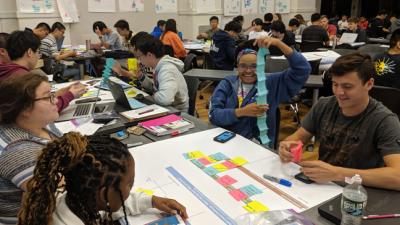Steven Cramer Elected to the National Academy of Engineering
Steven Cramer, the William Weightman Walker Professor of Polymer Engineering and a professor in the Isermann Department of Chemical and Biological Engineering at Rensselaer Polytechnic Institute (RPI), has been elected to the National Academy of Engineering for “scientific and technological advances leading to new chromatographic materials, processes, and predictive tools for the purification of biopharmaceuticals.”









